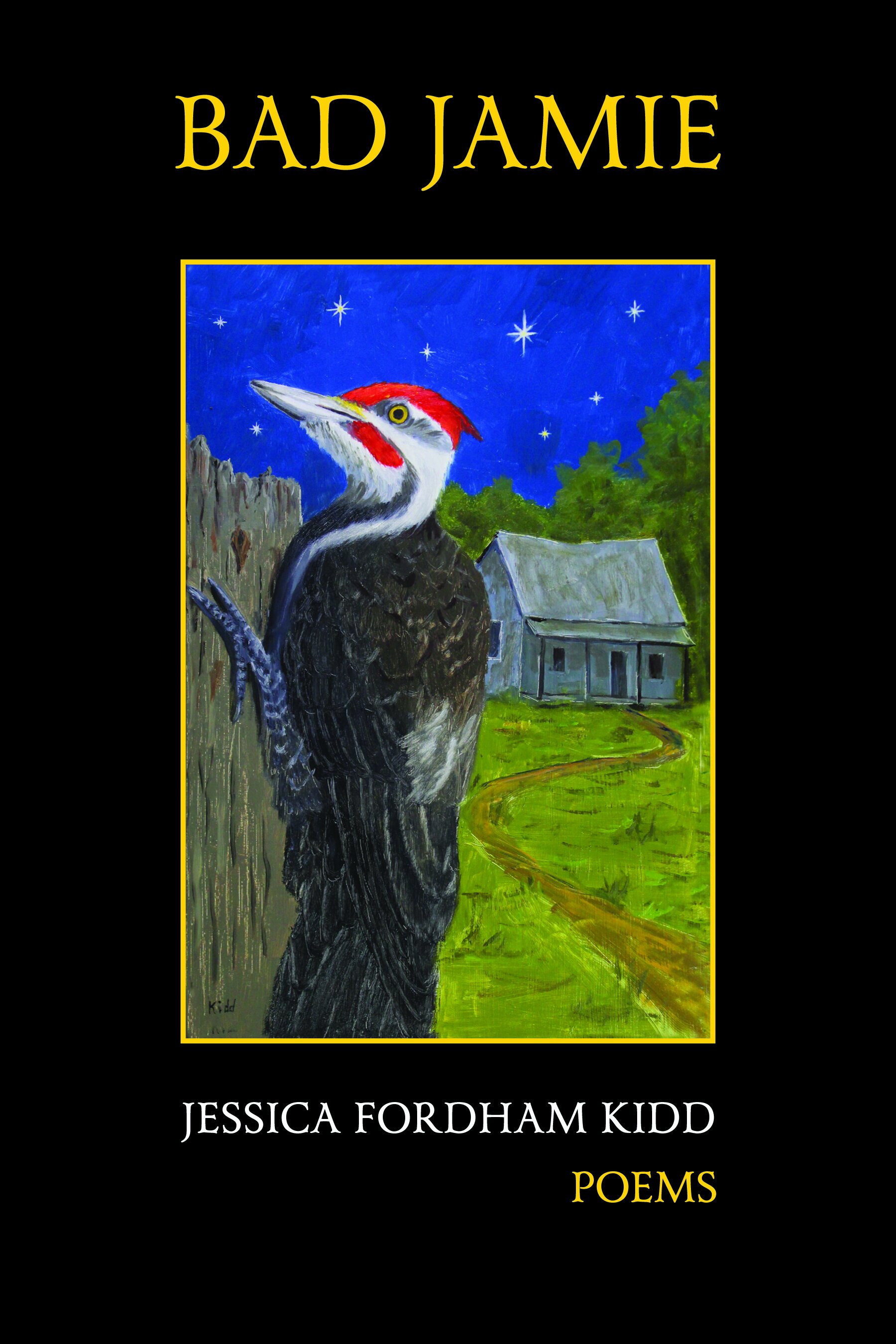
Bad Jamie by Jessica Fordham Kidd
This is the truth of a far-away look. In an astounding series of magical realist poems, Bad Jamie fashions the collective memory of a wounded southern family. With deft and uncannily fluid poems, Kidd constructs a world that resonates. Here, the animals, half-humans (and beings in between) may never exit rooms, in spirit nor physically: they remain and exist in several iterations of themselves. Kidd is deliberate in her characterization of Bad Jamie, a ne’er-do-well who wanders the outside world, orbiting his family and the children he’s neglected.
Bad Jamie is a revisionist’s impulse, reflective of dreams we carry of our families, our histories and our possible selves.
— Kwoya Fagin Maples, author of Mend
In Jessica Kidd’s debut collection, multiform Jamies and eldritch Granny-birds ruckus, pine, wreck, and yearn their way through a Southern Gothic landscape. The narrative light of these poems shines into corners of existence that American poetry, with its baked-in class snobbery, too often ignores — Bad Jamie’s pills run out, Town Clarence whoops his “daughter’s mean ass boyfriend,” a single dog is passed as a talisman of hard-won hope through an entire family tree. Kidd’s earthy, embodied imagery and incisive ear create moments of empathy and reckoning that defy assimilation into pat cultural narratives. She imbues her language and characters with a fierce and transformative love, a “red streaking / through the blue with all the power / that getting loose / after years of tethering / can give you.” — Tim Earley, author of Linthead Stomp
Under Granny’s Wings
Half-drunk, blood slowing in the cold,
Bad Jamie wakes sprawled on a schist outcrop.
Grains of mica shine on his face like magic.
He slips out of the mountain’s arms —
pine trees withered with disease and bristling chestnuts —
to find warmth in the bed
of a rusted-out pickup.
When the pickup gets scrapped,
Bad Jamie crawls through the rotted wall
of his grandmother’s old house
and smells for her in the corners.
There’s love there that grows back
like apples when it’s picked.
Granny’s there too. In her feathered form,
she drops white stars from the rafters
and her constellations are the Earth
moving slowly toward some kind of mercy.

